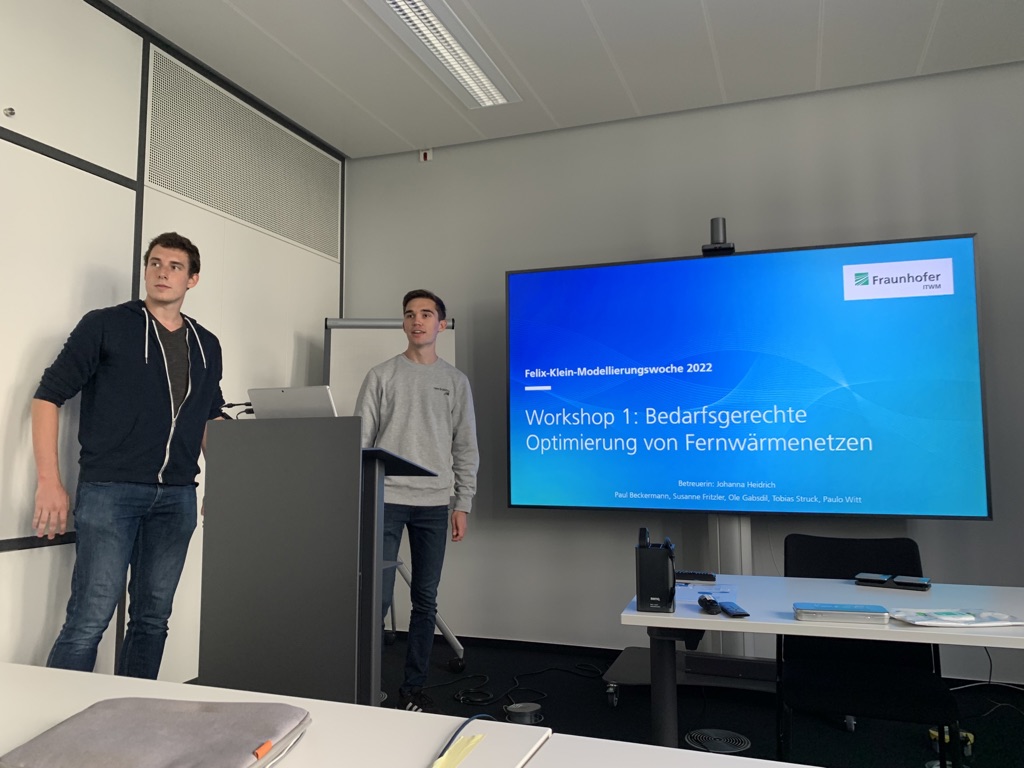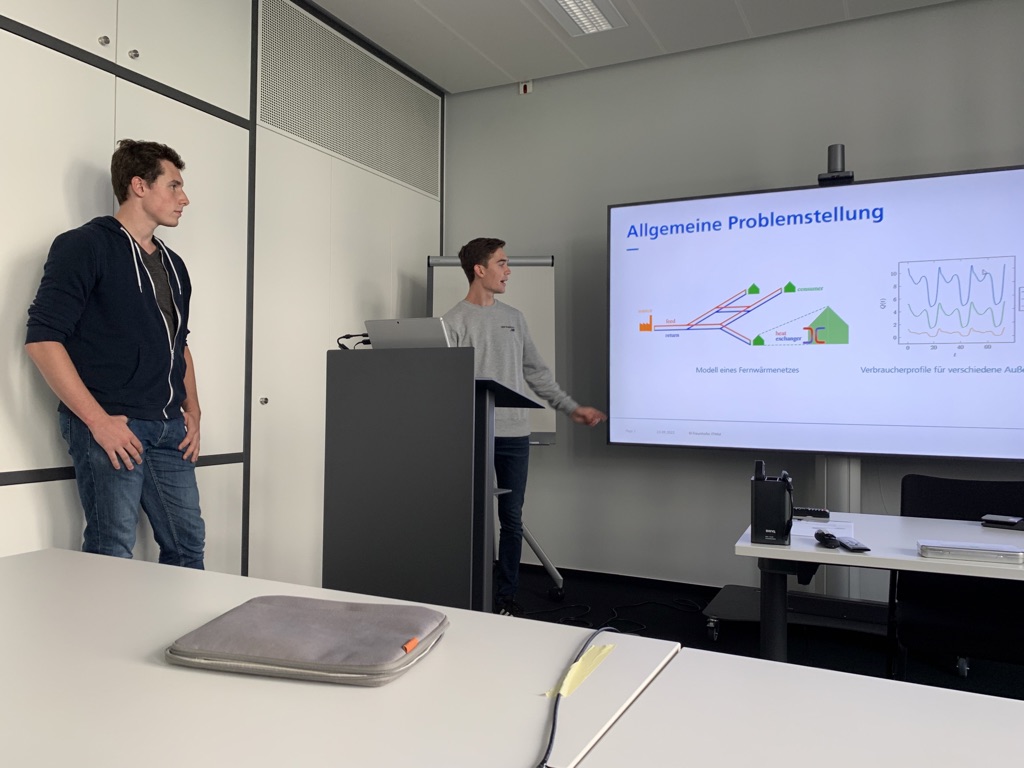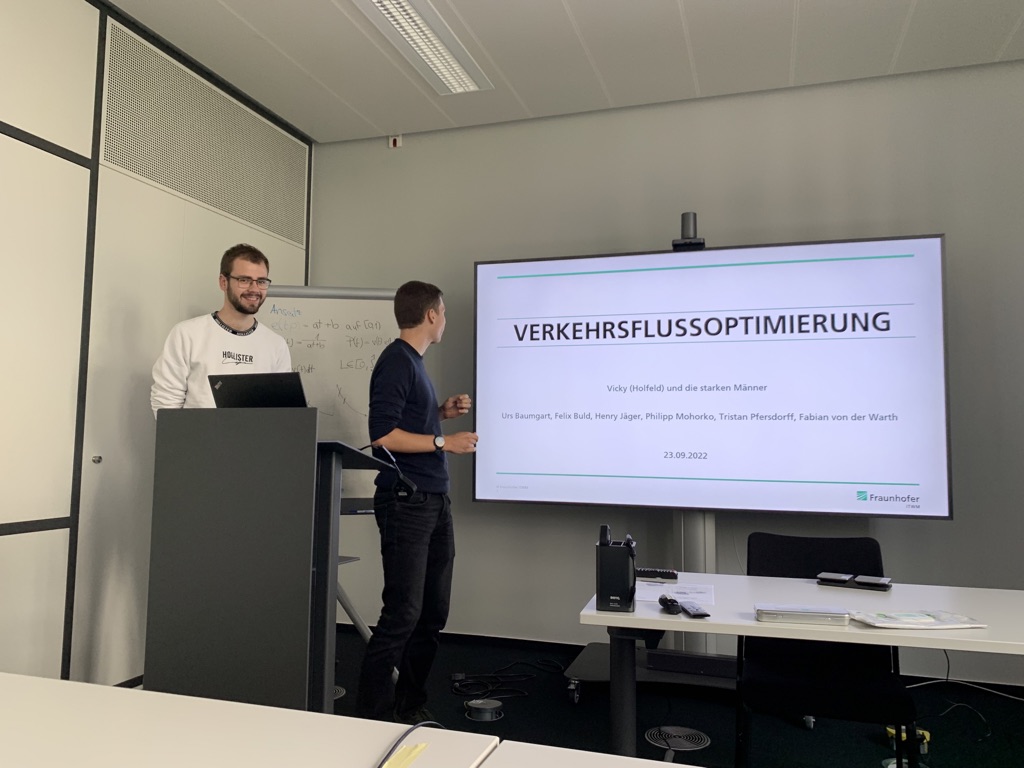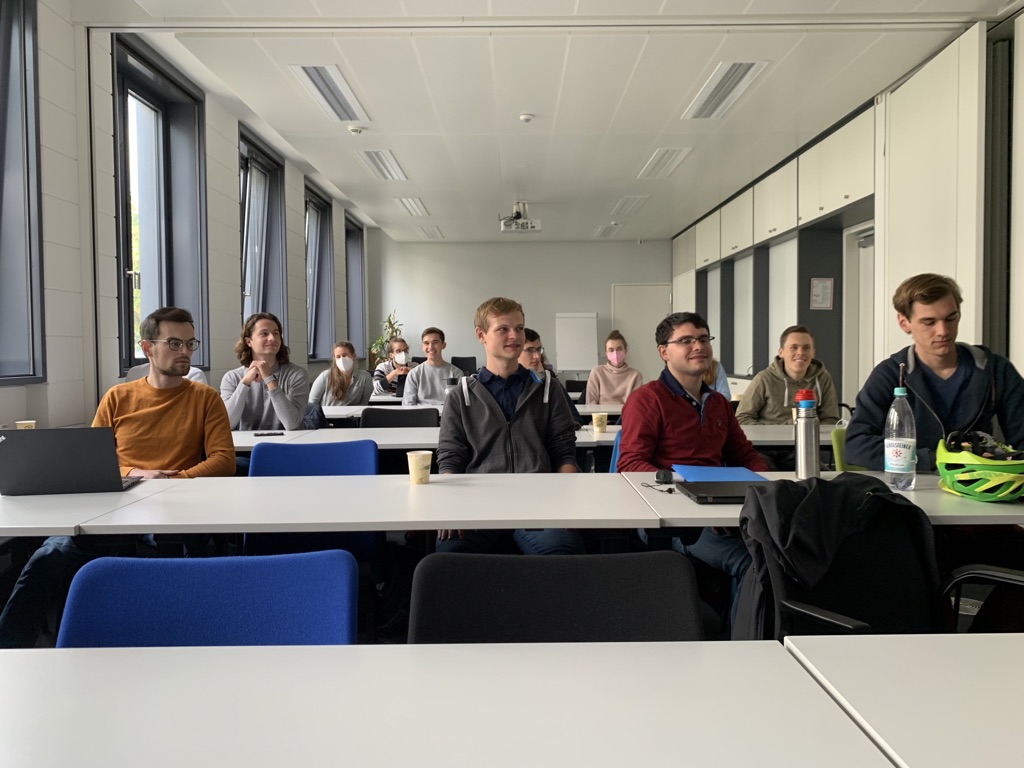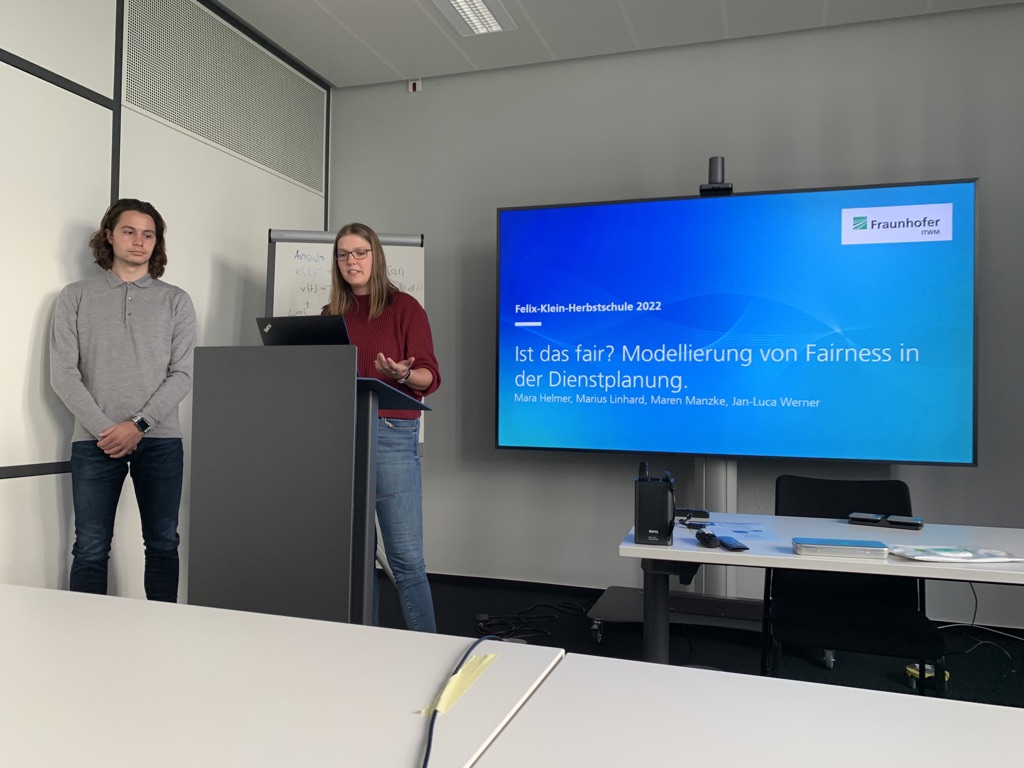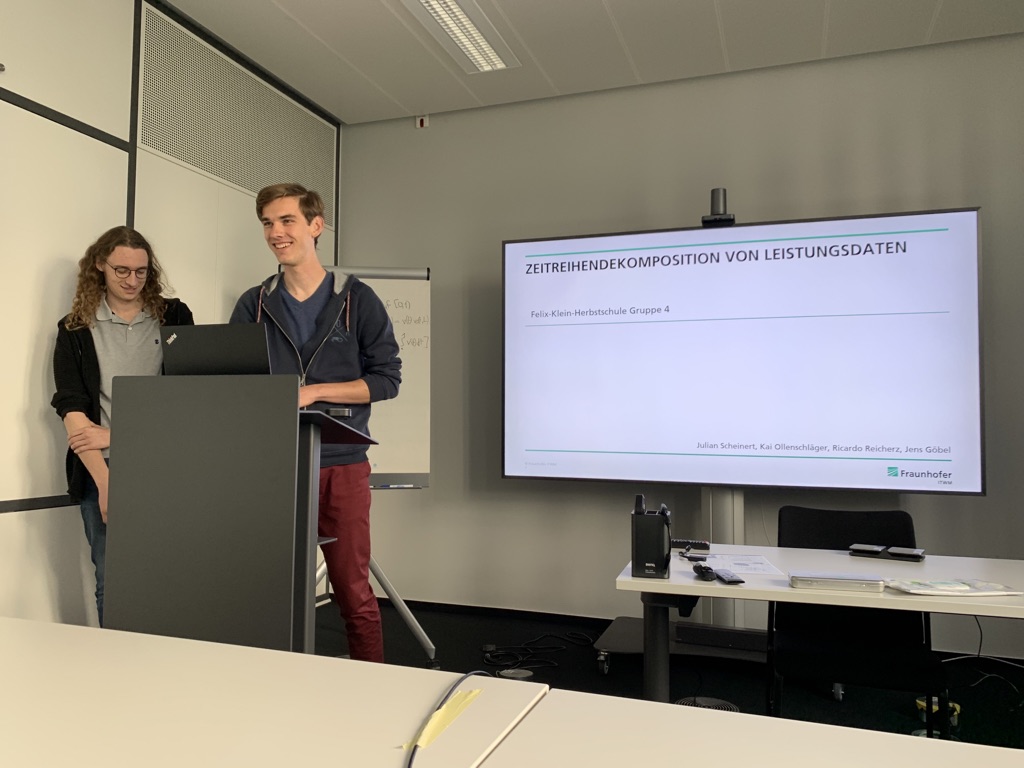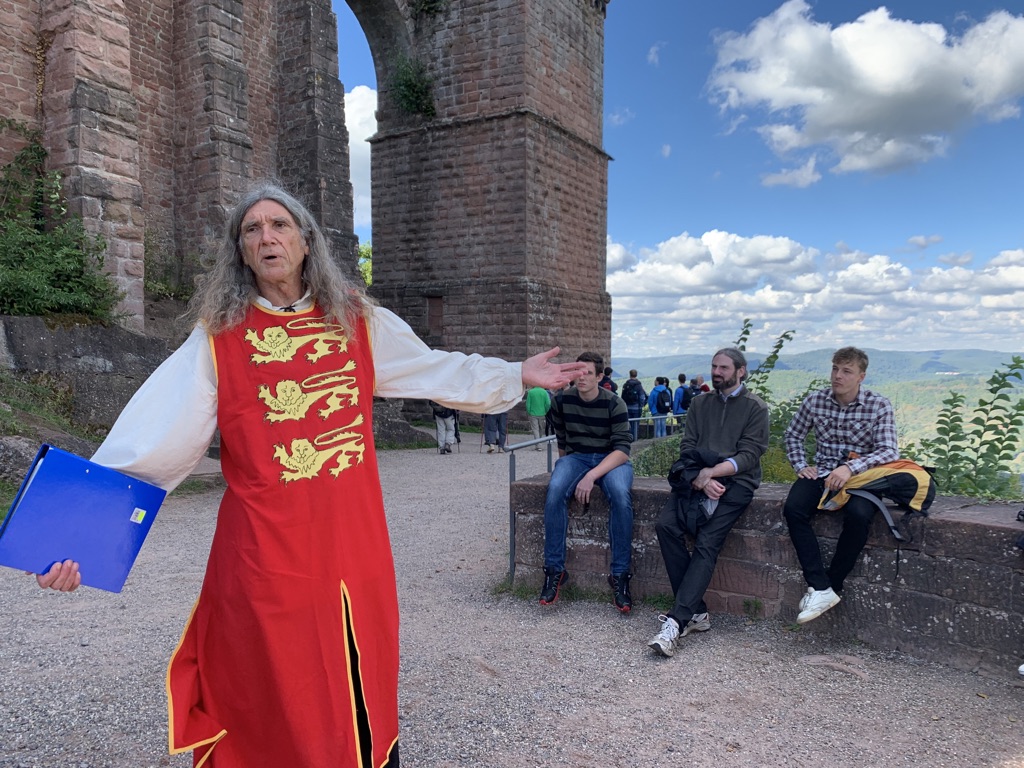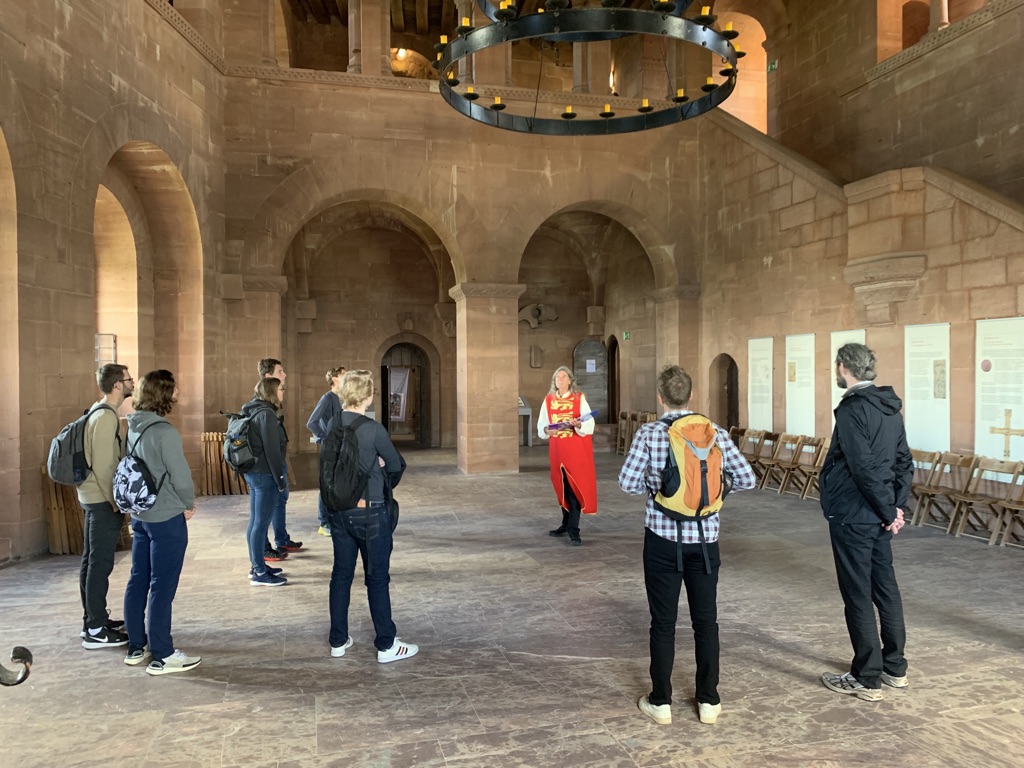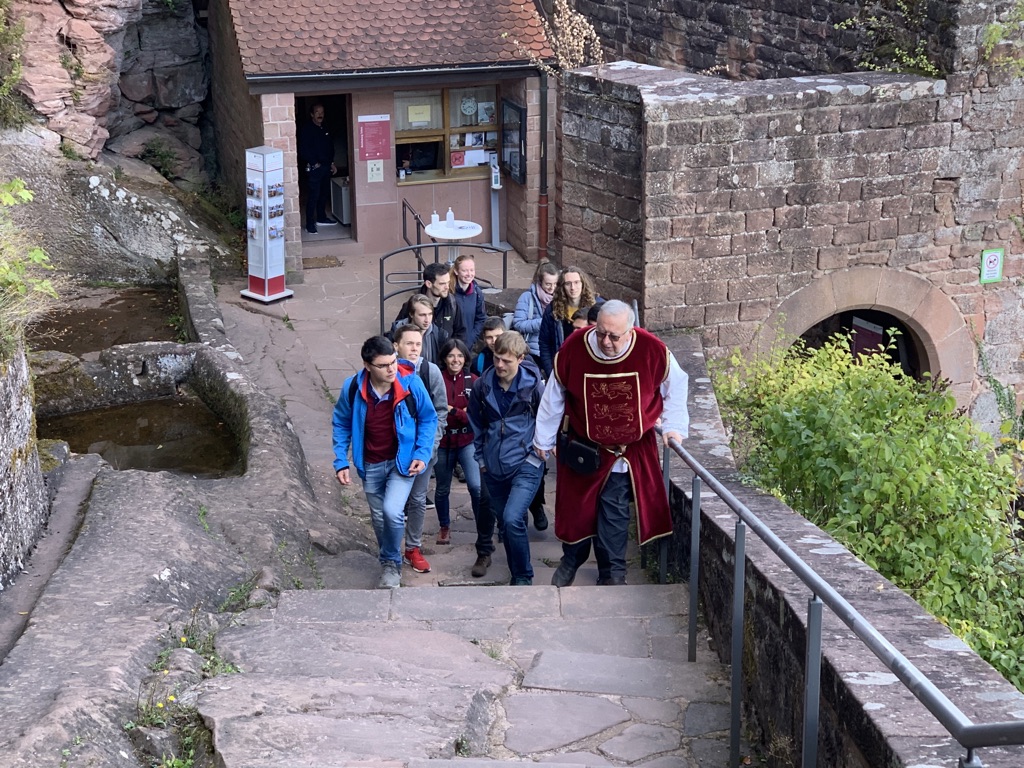2nd Group With the Topic: Traffic Flow Optimization - Optimal Regulation of Traffic Flows With the Help of Intelligently Controlled (e.g. Autonomous) Vehicles
Supervisior: Urs Baumgart and Vicky Holfeld, Division »Mathematics for Vehicle Engineering« (MF), Fraunhofer ITWM
Ever-increasing traffic volumes lead to longer traffic jams, more accidents and greater emissions. At the same time, we would like to make traffic safer, more efficient and more sustainable. While traffic could previously be controlled primarily by static objects such as traffic lights and speed limits, new technologies allow more direct interaction with various road users. On the one hand, more and more traffic data is being collected and can be transmitted in near real time, and on the other hand, modern vehicles have increasingly better assistance systems, right up to fully autonomous vehicles. In contrast to human drivers, these vehicles could in future be controlled directly with the aim of optimizing the traffic flow of all road users.
An exciting example to investigate this is the artificial traffic scenario of the Ring Road. Here, typical phenomena such as the development of traffic jams or stop-and-go waves due to inefficient human driving behavior can be identified, as they typically occur on highways or in urban traffic. The goal in this scenario is now to replace a human driver with an intelligently controlled vehicle and thus optimize traffic flow for all vehicles. The task of the second group is to first get familiar with the basics of traffic modeling. Then we will model the Ring Road and simulate traffic on it to study inefficient human driving behavior. Finally, we will look at different control approaches for the intelligent controlled vehicle with the goal to stabilize the traffic on the Ring Road.
